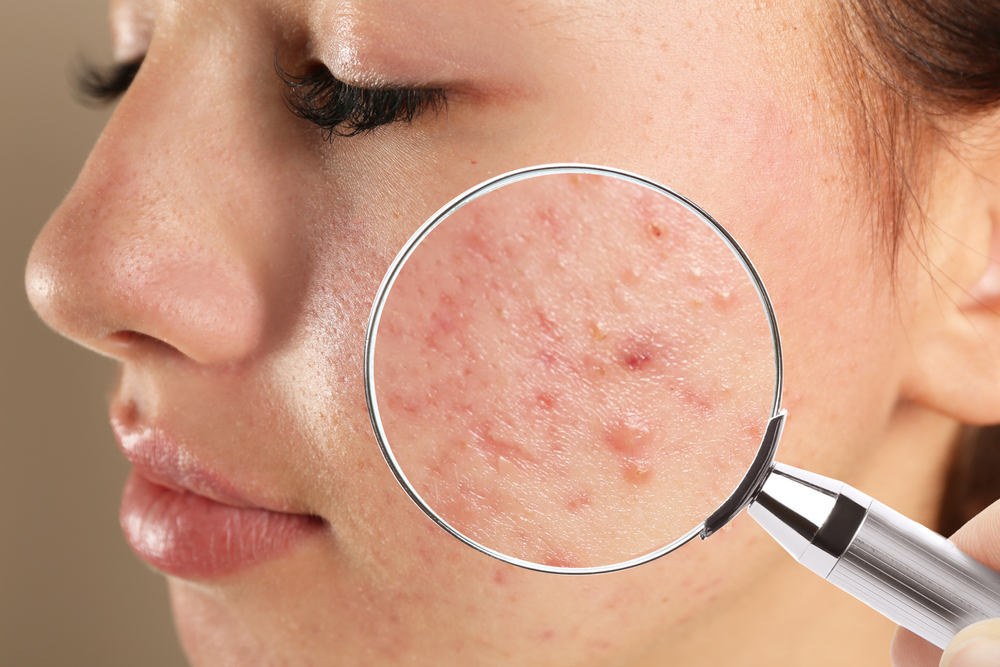
Seeing a Licensed Aesthetician for Acne
Acne. Just that word can send shivers down our collective spines. Acne is a skin condition that impacts millions of Americans every year. In some cases, acne treatment may require seeing a dermatologist or a licensed aesthetician.
In this post, we are going to cover how a licensed aesthetician can treat acne through cosmetic (rather than medical) skincare treatments. While licensed aestheticians are not able to prescribe acne medications or treat some of the more serious forms of acne, they are able to help patients care for the their skin and perform professional skincare treatments. Let’s learn more about what to expect when seeing a licensed aesthetician for acne.
What is the Difference in How a Dermatologist and Licenses Aesthetician Treat Acne?
There are a few differences when it comes to how a dermatologist and a licensed aesthetician treat acne. But before we get to how they each would treat acne, we must first understand the difference as to why someone would choose to visit one instead of the other. Patients who have cystic or severe acne will likely need prescription medications to help clear their skin and manage their acne; thus these patients will need to see a licensed physician or dermatologist because only they can prescribe prescription strength therapies.
How a Medical Aesthetician Treats Acne and Keeps Skin Clear
Medical aestheticians spend countless hours in the classroom and getting hands-on training through their aesthetician skin care training courses. Medical aestheticians learn how to provide a variety of treatments to help treat and manage acne. Here’s a few examples of what an aesthetician can do to help clear acne and keep it at bay:
Facials
Medical aestheticians are trained to give deep cleansing facials. These facials include deep cleaning, exfoliation, facial steams, massage, and more. This type of treatment helps clear pores and removes dead skin, helping to reduce future acne outbreaks
Extractions
Extractions can sound like an invasive treatment, but as we know with a medical aesthetician that’s not likely to be the case. Extracting refers to the cleaning out of non-inflamed pore blockages. This helps skin feel smoother and can help stop inflamed pimples from forming.
Skin Care Consultation
Arguably one of the most important roles taken on by medical aestheticians is that of a consultant. Medical aestheticians are trained to provide personalized, custom tailored, skincare routine consultation. They can give you tips and answer all of your questions when it comes to treating your skin.
Non-Invasive Procedures
Licensed medical aestheticians are able to provided professional, non-invasive skin care procedures. Treatments such as microdermabrasion and light chemical peels can be offered by an aesthetician. A medical aesthetician will consult with you prior to any procedure, taking into account medical history, allergies, and any healing requirements.
How to Become a Medical Aethetician?
Medical Aestheticians require advanced and intense training and education in order to provide the skin care treatments many patients require. For many Medical aestheticians, they can earn an aesthetician degree at a dedicated aesthetician school, two year colleges, or cosmetology schools. Current professional skin care providers can also enhance the services they offer by enrolling in additional aesthetician training classes. Each student must complete a required number of hours in order to be eligible for state licensure, in addition to completing a required number of treatments to demonstrate competency and experience. To learn more about becoming a medical aesthetician or information on upcoming aesthetician training classes, click here to submit an inquiry form.
Med-Surg Academy: Phoenix Aesthetician Training Academy
Many aestheticians choose to go into this professional because they once suffered with acne and unclear skin. They find joy and pride in helping others conquer this skin malady and boosting their self esteem through customized skin care routines and treatments. If you are looking to enhance your service offerings or simply looking to start a career in medical aesthetics, consider signing up for our upcoming aesthetic skin care training class or any of our other medical aesthetic training programs.
